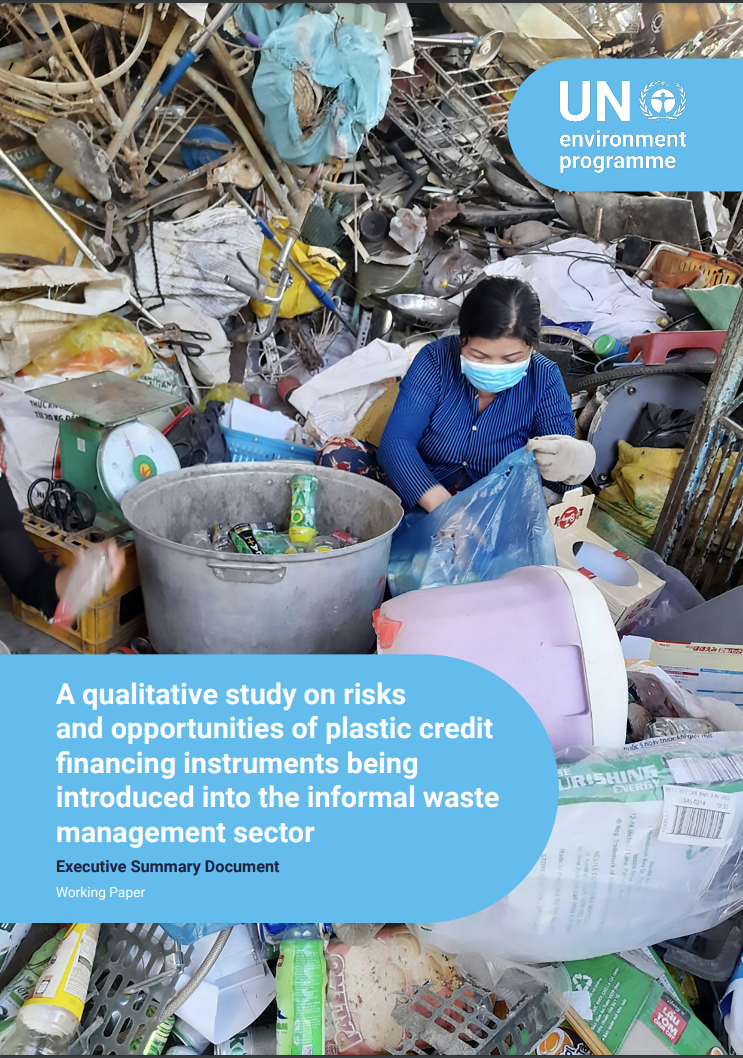The informal waste management sector is becoming increasingly significant as national waste management systems in many local contexts throughout South-East Asia must catch up with the region’s fast-rising plastic waste output. But despite their crucial role in managing plastic waste and resource recovery throughout South-East Asia, informal waste collectors are among the most marginalised groups in society, working in hazardous conditions without being recognised for their essential services and lacking access to reliable sources of income and fundamental social services.
Additional financing instruments are urgently required to improve local waste management systems and livelihoods in the informal sector because national EPR systems that would provide additional long-term funding to local waste management systems are still being implemented in most South-East Asian countries. In this setting, plastic credits have become a commonly debated finance strategy for managing plastic trash. However, despite the increasing number of participants entering the global plastic credit industry, more research needs to be done on the varied consequences of plastic credits, with most of the focus being on their possible environmental impact.
This study aims to bridge existing research gaps and bring to light a better understanding of the potential risks and opportunities associated with the introduction of plastic credits to the informal waste management sector in South-East Asia. The study’s regional focus is constituted namely by Malaysia, Thailand, Indonesia, the Philippines, Cambodia, and Vietnam
For more information please, visit https://www.sea-circular.org/publications/?pg=1


